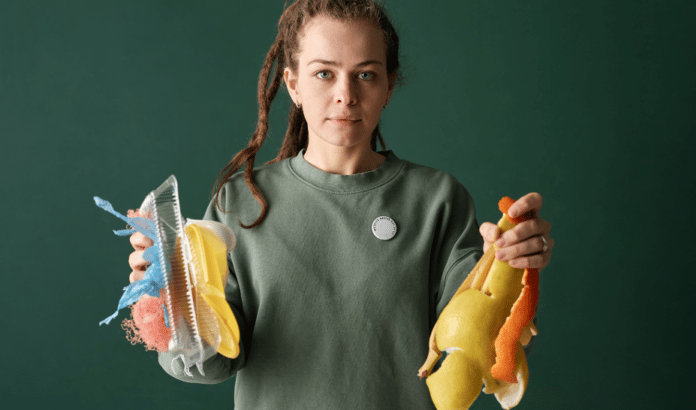Greentech is one of Europe’s biggest growth areas this year. It’s an innovation vertical that has the potential to shape and influence our future, and investors and innovators are actively promoting development in this sphere.
While many of us might think of energy and energy production and consumption – things like solar power and thermal energy – when greentech is mentioned, it actually refers to so much more than that. One element of greentech that is making big contributions to creating a more sustainable society is tackling waste.
Modern society can be characterized by many things, and one of those is waste. From fashion to food and energy to water, we have become wasteful with goods, products and services and it’s polluting our planet. European startups are now innovating in this space to help make society more circular and enhance the value of the things we use and purchase. There are startups involved in waste management and recycling, upcycling and reusing materials and beyond to help reduce carbon footprints and reduce waste – all making supply chains, businesses and societies more sustainable.
So, we wanted to put a spotlight on ten European startups tackling our waste problem:
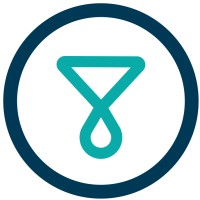 TAPP Water: Born in Barcelona, TAPP Water is on a mission to create sustainable and affordable products that eliminate the need for plastic water bottles – giving everyone pure water whenever they want it. Drinking tap water is an easy way to reduce plastic consumption, but, despite the fact it’s safe to drink, many people prefer to choose bottled water. The reality is that tap water in many locations, while technically safe, doesn’t taste so good and can leave some people with an upset stomach. TAPP Water has developed a device that you can attach to your tap so that it filters the water that comes from it. Not only does this reduce plastic consumption, and save money for users (no more running to the supermarket to buy water), but, it also saves carbon emissions from the transport of water bottles. Founded in 2016, TAPP Water has received €67 million in funding, from the Blue Water Group among other investors.
TAPP Water: Born in Barcelona, TAPP Water is on a mission to create sustainable and affordable products that eliminate the need for plastic water bottles – giving everyone pure water whenever they want it. Drinking tap water is an easy way to reduce plastic consumption, but, despite the fact it’s safe to drink, many people prefer to choose bottled water. The reality is that tap water in many locations, while technically safe, doesn’t taste so good and can leave some people with an upset stomach. TAPP Water has developed a device that you can attach to your tap so that it filters the water that comes from it. Not only does this reduce plastic consumption, and save money for users (no more running to the supermarket to buy water), but, it also saves carbon emissions from the transport of water bottles. Founded in 2016, TAPP Water has received €67 million in funding, from the Blue Water Group among other investors.
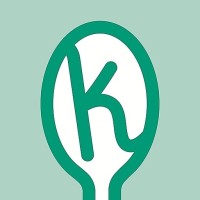 Kitche: Founded in London in 2018, Kitche is a smart kitchen app helping users reduce waste and save money. The free app keeps track of the food you have in your fridge and the food you buy, so you don’t have to worry about buying too much and throwing food away. It also provides recipes based on the food you have purchased – so there’s never an excuse to throw away that ingredient haunting the back of your fridge. It’s thought that the average family throws away about €80 of good food a month – this can be entirely avoided and Kitche is helping make it possible. Worldwide, 30% of all food produced is wasted – a figure that we can’t tolerate anymore in the wake of food insecurity, environmental crises and a growing food supply problem. Kitche has secured funding from British Venture Firm Q Ventures and is growing fast.
Kitche: Founded in London in 2018, Kitche is a smart kitchen app helping users reduce waste and save money. The free app keeps track of the food you have in your fridge and the food you buy, so you don’t have to worry about buying too much and throwing food away. It also provides recipes based on the food you have purchased – so there’s never an excuse to throw away that ingredient haunting the back of your fridge. It’s thought that the average family throws away about €80 of good food a month – this can be entirely avoided and Kitche is helping make it possible. Worldwide, 30% of all food produced is wasted – a figure that we can’t tolerate anymore in the wake of food insecurity, environmental crises and a growing food supply problem. Kitche has secured funding from British Venture Firm Q Ventures and is growing fast.
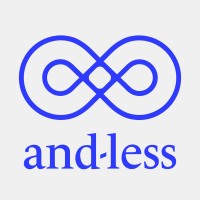 And-Less: Austrian designer Viktoria Berger has been developing sustainable packaging since she won a City of Linz innovation award in 2019 for her business and-less. When Covid-19 hit, she focused her attention on creating reusable takeaway containers, and, after a successful pilot phase in Vienna, Linz and Graz, the scheme is now being rolled out to more restaurants. Customers register via an app, scan the QR code on top of the lid, and return the containers to the original restaurant within 14 days, with reward vouchers as an incentive. and-less is available sales platform Zalando. With more and more of us using food ordering systems, food packaging is becoming a major pollutant, and-less is an innovative solution for building more sustainable societies.
And-Less: Austrian designer Viktoria Berger has been developing sustainable packaging since she won a City of Linz innovation award in 2019 for her business and-less. When Covid-19 hit, she focused her attention on creating reusable takeaway containers, and, after a successful pilot phase in Vienna, Linz and Graz, the scheme is now being rolled out to more restaurants. Customers register via an app, scan the QR code on top of the lid, and return the containers to the original restaurant within 14 days, with reward vouchers as an incentive. and-less is available sales platform Zalando. With more and more of us using food ordering systems, food packaging is becoming a major pollutant, and-less is an innovative solution for building more sustainable societies.
 Krill Design: Based in Milan, Krill Design is a startup that embodies the phrase “turning trash into treasure.” Founded in 2018, its flagship product, the Ohmie Orange Lamp, is a light fixture made of Sicilian orange peels. The lamp is entirely compostable and supports the circular economy of the area. The startup fights the ever-growing problem of food waste by creating beautiful, well-designed products out of materials that would otherwise be considered trash. It takes the organic waste of food and beverage companies such as peels, seeds and shells and turns them into a biopolymer which is biodegradable and compostable. Krill Design is backed by the commune of Milano and San Pelegrino. The Orange Peel Ohmie lamp is on Kickstarter raising €40k to-date to go into reproduction. It’s a startup promoting an environmentally friendly circular economy.
Krill Design: Based in Milan, Krill Design is a startup that embodies the phrase “turning trash into treasure.” Founded in 2018, its flagship product, the Ohmie Orange Lamp, is a light fixture made of Sicilian orange peels. The lamp is entirely compostable and supports the circular economy of the area. The startup fights the ever-growing problem of food waste by creating beautiful, well-designed products out of materials that would otherwise be considered trash. It takes the organic waste of food and beverage companies such as peels, seeds and shells and turns them into a biopolymer which is biodegradable and compostable. Krill Design is backed by the commune of Milano and San Pelegrino. The Orange Peel Ohmie lamp is on Kickstarter raising €40k to-date to go into reproduction. It’s a startup promoting an environmentally friendly circular economy.
 Atelier Riforma: Sara Secondo and Elena Ferrero, co-founders of Atelier Riforma want to make sure that no garment ever becomes waste. This eco startup collects secondhand clothes, which are catalogued and tracked via AI technology, then redirected for reuse, recycling or upcycling. The fashion industry has received a bad reputation over the years for its contribution to waste, exploitation and environmental damage. Atelier Riforma wants to change this – feeding consumer appetite in a more sustainable way. Founded in 2020, the female-founded startup raised its initial funds of €5k. Now they are up for a Green Alley award and have a strong network of tailoring professionals across Italy. The startup is also actively involved in innovation and research and development activities through partnerships to make the fashion industry truly circular.
Atelier Riforma: Sara Secondo and Elena Ferrero, co-founders of Atelier Riforma want to make sure that no garment ever becomes waste. This eco startup collects secondhand clothes, which are catalogued and tracked via AI technology, then redirected for reuse, recycling or upcycling. The fashion industry has received a bad reputation over the years for its contribution to waste, exploitation and environmental damage. Atelier Riforma wants to change this – feeding consumer appetite in a more sustainable way. Founded in 2020, the female-founded startup raised its initial funds of €5k. Now they are up for a Green Alley award and have a strong network of tailoring professionals across Italy. The startup is also actively involved in innovation and research and development activities through partnerships to make the fashion industry truly circular.
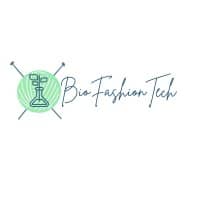 BioFashionTech: Considering that a whopping 87% of used clothing ends up in landfills or incinerators, Dutch startup BioFashionTech has developed a cost-effective, low-energy and circular recycling process that turns textile waste into new materials. It also extracts plastic fibres and dyes that can then be sold to create a closed-loop solution. As a result, BioFashionTech brings textile waste into circular bobsled products that have value once again. At the same time, it’s helping to reduce the amount of fossil fuels used to make synthetic fibres – accounting for a reported 52% of the global fibre market. BioFashionTech, founded by Fabiola Polli and based in Groningen and Milan, works with its sister company Chicfashic to raise awareness about the fashion industry and help consumers to become more knowledgeable about their purchases.
BioFashionTech: Considering that a whopping 87% of used clothing ends up in landfills or incinerators, Dutch startup BioFashionTech has developed a cost-effective, low-energy and circular recycling process that turns textile waste into new materials. It also extracts plastic fibres and dyes that can then be sold to create a closed-loop solution. As a result, BioFashionTech brings textile waste into circular bobsled products that have value once again. At the same time, it’s helping to reduce the amount of fossil fuels used to make synthetic fibres – accounting for a reported 52% of the global fibre market. BioFashionTech, founded by Fabiola Polli and based in Groningen and Milan, works with its sister company Chicfashic to raise awareness about the fashion industry and help consumers to become more knowledgeable about their purchases.
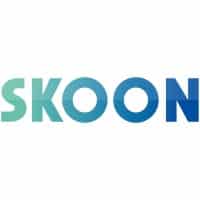 Skoon Energy: This Rotterdam-based startup aims to accelerate the energy transition by setting up a network of versatile swappable batteries, to share, rent and lease. The idea is to get rid of battery waste and rent out energy where needed. The company wants to build a trusted community marketplace for businesses to offer, discover, and book energy storage for mobile and/or temporary applications. It offers two core solutions: Skoon Sharing which is the marketplace for clean mobile energy solutions and Skoon Suite which provides rental management software. Founded in 2017, Skoon Energy has received the Maritime Innovation Award 2018 paired with €42k in funding and support.
Skoon Energy: This Rotterdam-based startup aims to accelerate the energy transition by setting up a network of versatile swappable batteries, to share, rent and lease. The idea is to get rid of battery waste and rent out energy where needed. The company wants to build a trusted community marketplace for businesses to offer, discover, and book energy storage for mobile and/or temporary applications. It offers two core solutions: Skoon Sharing which is the marketplace for clean mobile energy solutions and Skoon Suite which provides rental management software. Founded in 2017, Skoon Energy has received the Maritime Innovation Award 2018 paired with €42k in funding and support.
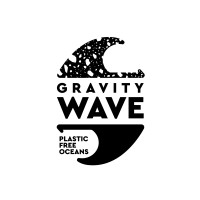 Gravity Wave: Our waters are dangerously polluted with plastic. Not only is plastic contaminating the beaches from careless Bach visitors, but deep in the oceans, the water is full of microplastics and it’s having disastrous consequences for marine life, habitats, water systems, the seafood we consume and beyond. Spanish social enterprise Gravity Wave partners with Mediterranean fishermen to collect plastic from the seabed. That waste is then turned into sustainable products, such as mobile phone cases and filament for 3D printers. One of the companies selling their products is Flying Tiger from Copenhagen. The social enterprise was founded in 2020 and also helps companies become ‘plastic neutral’ by collecting the equivalent amount of plastic that their employees generate. Gravity Wave has received €100K in Seed Funding and is based in Alicante, Spain.
Gravity Wave: Our waters are dangerously polluted with plastic. Not only is plastic contaminating the beaches from careless Bach visitors, but deep in the oceans, the water is full of microplastics and it’s having disastrous consequences for marine life, habitats, water systems, the seafood we consume and beyond. Spanish social enterprise Gravity Wave partners with Mediterranean fishermen to collect plastic from the seabed. That waste is then turned into sustainable products, such as mobile phone cases and filament for 3D printers. One of the companies selling their products is Flying Tiger from Copenhagen. The social enterprise was founded in 2020 and also helps companies become ‘plastic neutral’ by collecting the equivalent amount of plastic that their employees generate. Gravity Wave has received €100K in Seed Funding and is based in Alicante, Spain.
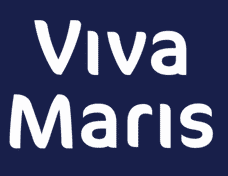 Viva Maris: One approach to making the planet greener is a shift to a diet based on alternatives to meat and dairy. A clean high-protein ingredient that can replace animal products is growing in the oceans: algae. Viva Maris GmbH is a German greentech startup company that is committed to protecting the ocean through nutrition, education, and raising awareness about the human impact on the ocean. To do this, Viva Maris GmbH creates food products using the ultra-sustainable oceanic ingredient. Beyond producing algae products, the startup also prioritizes the protection of the ocean’s biodiversity, securing employment for former fishermen, and assisting with the preservation of natural marine algae. Viva Maris was launched in 2014 and has been funded by Schleswig-Holstein and the European Regional Development fund.
Viva Maris: One approach to making the planet greener is a shift to a diet based on alternatives to meat and dairy. A clean high-protein ingredient that can replace animal products is growing in the oceans: algae. Viva Maris GmbH is a German greentech startup company that is committed to protecting the ocean through nutrition, education, and raising awareness about the human impact on the ocean. To do this, Viva Maris GmbH creates food products using the ultra-sustainable oceanic ingredient. Beyond producing algae products, the startup also prioritizes the protection of the ocean’s biodiversity, securing employment for former fishermen, and assisting with the preservation of natural marine algae. Viva Maris was launched in 2014 and has been funded by Schleswig-Holstein and the European Regional Development fund.
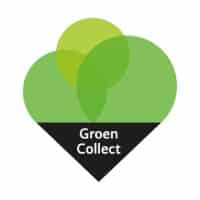 GroenCollect: Founded in 2016, GroenCollect is a startup concerned with the sustainable, fast and economical collection of waste. The Rotterdam-based startup collects organic waste, which is rich in useful substances and prepares it for use in all kinds of biochemical processes. For example, making biogas from old bread, vegetables, fruit and food leftovers. Oyster mushrooms can be grown with products such as coffee grounds or made into bioplastic. Their aim is to create a world where renewable energy becomes the norm. Since 2017, the team has been supplying Stadsgas to generate energy from urban residues. Other goals include the extraction of proteins, producing bioplastics and producing oils.
GroenCollect: Founded in 2016, GroenCollect is a startup concerned with the sustainable, fast and economical collection of waste. The Rotterdam-based startup collects organic waste, which is rich in useful substances and prepares it for use in all kinds of biochemical processes. For example, making biogas from old bread, vegetables, fruit and food leftovers. Oyster mushrooms can be grown with products such as coffee grounds or made into bioplastic. Their aim is to create a world where renewable energy becomes the norm. Since 2017, the team has been supplying Stadsgas to generate energy from urban residues. Other goals include the extraction of proteins, producing bioplastics and producing oils.
By the way: If you’re a corporate or investor looking for exciting startups in a specific market for a potential investment or acquisition, check out our Startup Sourcing Service!



